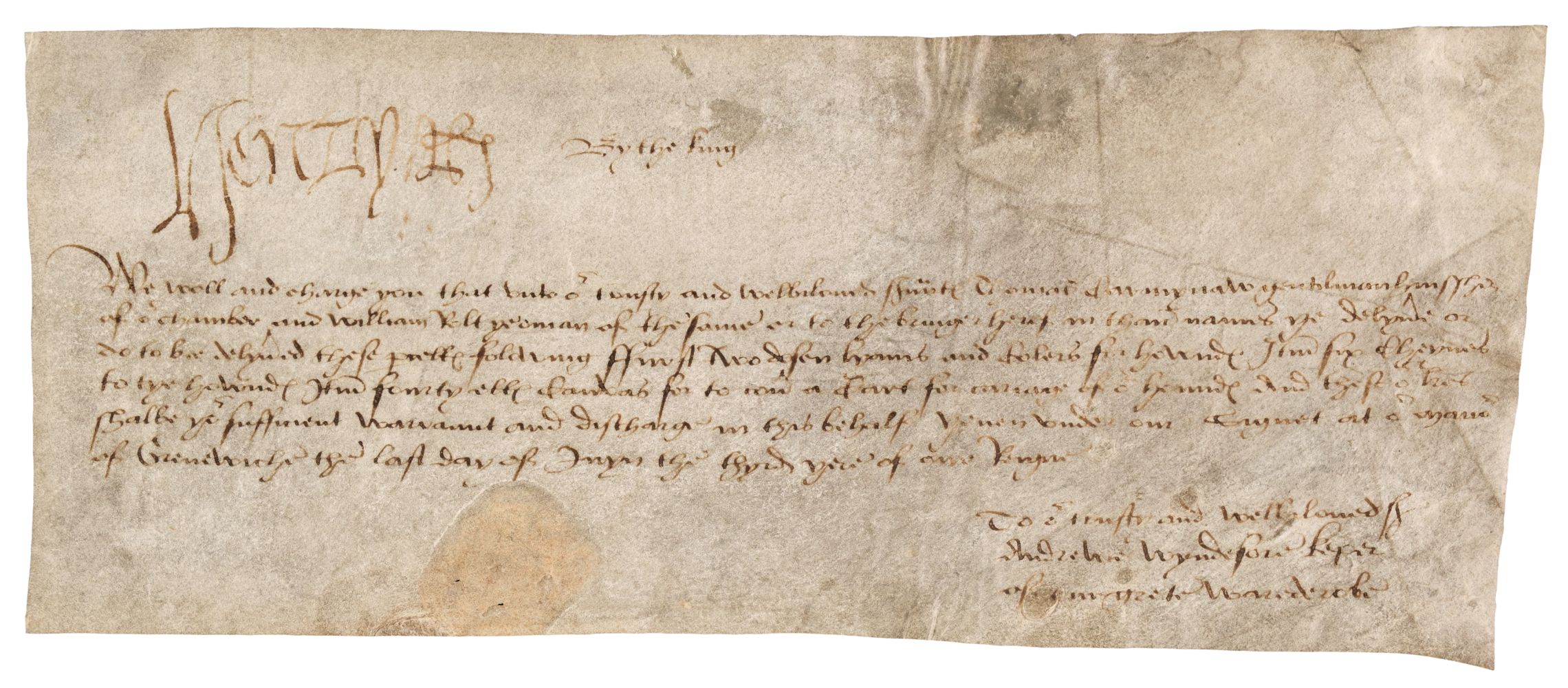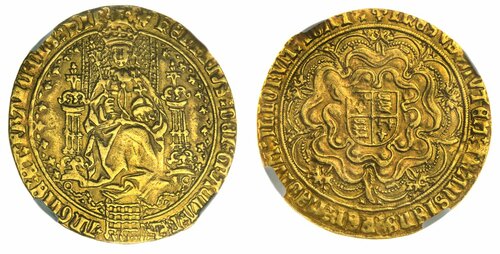November 1508 - May 1509 RHETORES GRAECI -- Rhetores in hoc volumine habentur hi. Aphthonii Sophistae Progymnasmata. Hermogenis ars Rhetorica. Aristotelis Rhetoricorum ad Theodecten libri tres. Eiusdem Rhetorice ad Alexandrum. Eiusdem ars Poetica. Sopatri Rhetoris quaestiones de componendis declamationibus in causis praecipue iudicialibus. Cyri Sophistae differentiae statuum. Dionysii Alicarnasei ars Rhetorica. Demetrii Phalerei de interpretatione. Alexandri Sophistae de figuris sensus & dictionis. Adnotationes innominati de figuris Rhetoricis. Menandri Rhetoris divisio causarum in genere demonstrativo. Aristeidis de civili oratione. Eiusdem de simplici oratione. Apsini de arte Rhetorica praecepta , Gk -APSINES of Gadara (ca. 190-250). \kPeri sxhmátvn\K. -MINUCIANOS the younger (fl. 3rd cent.) \kPeri epixeirhmátvn\K. -- [Vol. II:] In Aphthonii Progymnasmata Commentarii Innominati autoris. Syriani, Sopatri, Marcellini Commentarii in Hermogenis Rhetorica , Gk. Eds. Demetrios Ducas (Candia ca. 1480 - ca. 1527 Rome ?) and Aldo Manuzio. Royal 4° (282 x 175mm and slightly smaller), 2 volumes. Collation: vol. I * 8 (Latin title and device f1, publisher's Latin dedication to Janus Lascaris, Greek table of contents, Ducas' prefatory letter in Greek to his Cretan colleague Marcus Musurus), A-Z AA-ZZ 8 (all texts in Greek, ZZ8 r quire register and colophon, ZZ8 v blank); vol. II 1 8 2 6 (Latin title and device Fletcher no. f2, publisher's Latin dedication to Musurus, Greek commentaries on Aphthonios), a-z & A 8 B 10 (three Greek commentaries on Hermogenes, B9 r register and colophon, B9 v -10 r blank, B10 v device f2). 376 and 224 leaves. Greek type 3bis:90 and roman 11bis:91. 46 lines and headline. (Inner blank margin of first title strengthened, a few marginal wormholes at the beginning mended, both vols. washed.) PREFACE: In his preface dedicating vol. 1 to Lascaris (Constantinople 1445-1534 Rome), Aldus has no doubt what pleasure the "Royal orator" will take from seeing these Greek texts on rhetorical theory printed, firstly because he wants the Greek language spread abroad, so that even threatened by the barbarian incursions it now revives, and secondly because it will help students. Aldus knows this as Lascaris has helped him so much from afar and now for the last five years in Venice as the French King's ambassador. He has given him books and urged their publication. Hence the orators. What worthier or more learned dedicatee could possibly be found, one who moreover descends from a noble and imperial family? He dedicates vol. 2 to Musurus (Candia ca. 1470-1517 Rome), who has constantly assisted Aldus in his arduous mission and taught with great effect Greek literature at the Gymnasium of Padua. This has also improved Latin studies and the Liberal Arts, which have their origin in Greek culture and take their inspiration from the Greek authors. Musurus more than anyone else combines knowledge of Greek and Latin culture, as a linguist and philosopher. Through these rhetorical devices Aldus would be content to incite men to study, but in these terrible times one has to quote [Virgil Georg. I, 510-11]: "Neighbouring cities break pacts and wage war; pitiless Mars rages everywhere." [Exactly one week before the date of this preface 21 May 1509, the Venetian army had been routed at Agnadello by the forces of the League of Cambrai.] BINDING: gold-tooled red morocco in Restoration style, marbled edges gilt, marbled endpapers, signed in pencil C. Lloyd on flyleaf. PROVENANCE: Mario Galeotti (contemporary 'et amicorum' inscr.), some contemporary Greek marginalia (washed out) EDITIO PRINCEPS OF THIS HIGHLY IMPORTANT COLLECTION OF GREEK TEXTS ON THE THEORY OF ORATORY, including the two major omissions from the Aldine Aristotle 1495-98 (lot 2), the Poetics and Rhetoric , the two staple works by Aphthonios and Hermogenes inflicted on every Byzantine schoolchild, Sopater, Dionysius Halicarnassus, Demetrius, and Menander Rhetor. It is remarkabl
November 1508 - May 1509 RHETORES GRAECI -- Rhetores in hoc volumine habentur hi. Aphthonii Sophistae Progymnasmata. Hermogenis ars Rhetorica. Aristotelis Rhetoricorum ad Theodecten libri tres. Eiusdem Rhetorice ad Alexandrum. Eiusdem ars Poetica. Sopatri Rhetoris quaestiones de componendis declamationibus in causis praecipue iudicialibus. Cyri Sophistae differentiae statuum. Dionysii Alicarnasei ars Rhetorica. Demetrii Phalerei de interpretatione. Alexandri Sophistae de figuris sensus & dictionis. Adnotationes innominati de figuris Rhetoricis. Menandri Rhetoris divisio causarum in genere demonstrativo. Aristeidis de civili oratione. Eiusdem de simplici oratione. Apsini de arte Rhetorica praecepta , Gk -APSINES of Gadara (ca. 190-250). \kPeri sxhmátvn\K. -MINUCIANOS the younger (fl. 3rd cent.) \kPeri epixeirhmátvn\K. -- [Vol. II:] In Aphthonii Progymnasmata Commentarii Innominati autoris. Syriani, Sopatri, Marcellini Commentarii in Hermogenis Rhetorica , Gk. Eds. Demetrios Ducas (Candia ca. 1480 - ca. 1527 Rome ?) and Aldo Manuzio. Royal 4° (282 x 175mm and slightly smaller), 2 volumes. Collation: vol. I * 8 (Latin title and device f1, publisher's Latin dedication to Janus Lascaris, Greek table of contents, Ducas' prefatory letter in Greek to his Cretan colleague Marcus Musurus), A-Z AA-ZZ 8 (all texts in Greek, ZZ8 r quire register and colophon, ZZ8 v blank); vol. II 1 8 2 6 (Latin title and device Fletcher no. f2, publisher's Latin dedication to Musurus, Greek commentaries on Aphthonios), a-z & A 8 B 10 (three Greek commentaries on Hermogenes, B9 r register and colophon, B9 v -10 r blank, B10 v device f2). 376 and 224 leaves. Greek type 3bis:90 and roman 11bis:91. 46 lines and headline. (Inner blank margin of first title strengthened, a few marginal wormholes at the beginning mended, both vols. washed.) PREFACE: In his preface dedicating vol. 1 to Lascaris (Constantinople 1445-1534 Rome), Aldus has no doubt what pleasure the "Royal orator" will take from seeing these Greek texts on rhetorical theory printed, firstly because he wants the Greek language spread abroad, so that even threatened by the barbarian incursions it now revives, and secondly because it will help students. Aldus knows this as Lascaris has helped him so much from afar and now for the last five years in Venice as the French King's ambassador. He has given him books and urged their publication. Hence the orators. What worthier or more learned dedicatee could possibly be found, one who moreover descends from a noble and imperial family? He dedicates vol. 2 to Musurus (Candia ca. 1470-1517 Rome), who has constantly assisted Aldus in his arduous mission and taught with great effect Greek literature at the Gymnasium of Padua. This has also improved Latin studies and the Liberal Arts, which have their origin in Greek culture and take their inspiration from the Greek authors. Musurus more than anyone else combines knowledge of Greek and Latin culture, as a linguist and philosopher. Through these rhetorical devices Aldus would be content to incite men to study, but in these terrible times one has to quote [Virgil Georg. I, 510-11]: "Neighbouring cities break pacts and wage war; pitiless Mars rages everywhere." [Exactly one week before the date of this preface 21 May 1509, the Venetian army had been routed at Agnadello by the forces of the League of Cambrai.] BINDING: gold-tooled red morocco in Restoration style, marbled edges gilt, marbled endpapers, signed in pencil C. Lloyd on flyleaf. PROVENANCE: Mario Galeotti (contemporary 'et amicorum' inscr.), some contemporary Greek marginalia (washed out) EDITIO PRINCEPS OF THIS HIGHLY IMPORTANT COLLECTION OF GREEK TEXTS ON THE THEORY OF ORATORY, including the two major omissions from the Aldine Aristotle 1495-98 (lot 2), the Poetics and Rhetoric , the two staple works by Aphthonios and Hermogenes inflicted on every Byzantine schoolchild, Sopater, Dionysius Halicarnassus, Demetrius, and Menander Rhetor. It is remarkabl









.jpg)




Testen Sie LotSearch und seine Premium-Features 7 Tage - ohne Kosten!
Lassen Sie sich automatisch über neue Objekte in kommenden Auktionen benachrichtigen.
Suchauftrag anlegen